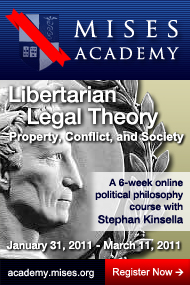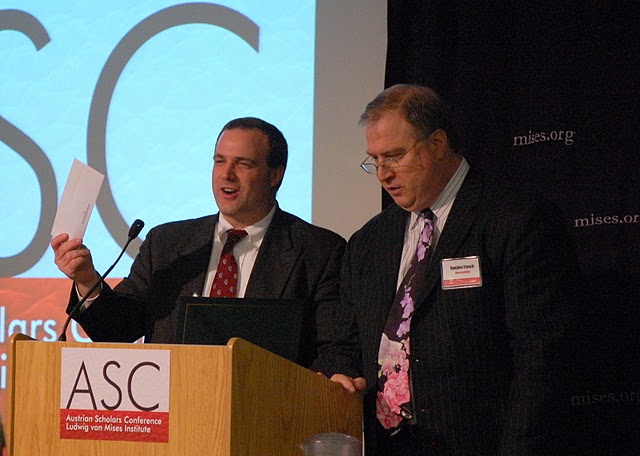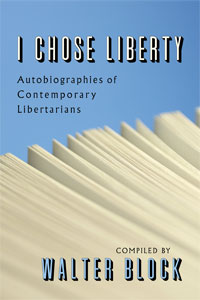Objectivists on Positive Parental Obligations and Abortion
Libertarian TheoryIn my How We Come To Own Ourselves, Mises Daily (Sep. 7, 2006), I argue:
the libertarian could argue that the parent has various positive obligations to his or her children, such as the obligation to feed, shelter, educate, etc. The idea here is that libertarianism does not oppose “positive rights”; it simply insists that they be voluntarily incurred. One way to do this is by contract; another is by trespassing against someone’s property. Now, if you pass by a drowning man in a lake you have no enforceable (legal) obligation to try to rescue him; but if you push someone in a lake you have a positive obligation to try to rescue him. If you don’t you could be liable for homicide. Likewise, if your voluntary actions bring into being an infant with natural needs for shelter, food, care, it is akin to throwing someone into a lake. In both cases you create a situation where another human is in dire need of help and without which he will die. By creating this situation of need you incur an obligation to provide for those needs. And surely this set of positive obligations would encompass the obligation to manumit the child at a certain point. This last argument is, to my mind, the most attractive, but it is also probably the least likely to be accepted by most libertarians, who generally seem opposed to positive obligations, even if they are incurred as the result of one’s actions. Rothbard, for example, puts forward several objections to such an approach.
Now, I did not explicitly apply this to the case of abortion, but it should be clear that this approach could imply that parental obligations exist that obligate the parent not to abort the fetus, at least after a certain point, at least in normal, non-life-threatening, cases. (I lean toward this view: abortion is increasingly immoral, at least in the typical case, starting from the point of conception; and at some point in the second or third trimester, when the fetus has developed enough to be said to “be a person” (to have a developed brain and other organs), abortion would be infanticide, or tantamount thereto. I would still oppose state law against abortion even in the last trimester, however, partly because I oppose the state, and partly because enforcement of such a law would be inherently dangerous and invasive.)
So I found the following interesting. In a recent Noodlecast podcast, Objectivist Diana Hsieh notes some of her fellow Objectivists disagree with her on abortion. She notes, in particular, that her fellow co-blogger, the pro-IP Greg Perkins, has written Abortion Rights and Parental Obligations. In this piece, Perkins argues, similar to me, that you can assume positive, parental obligations, even “implicitly” by your actions; and that at a certain point of “viability” the fetus has personhood and rights, and may not be aborted (at least in the normal case). I disagree with some aspects and nuances of his argument, but … interesting nonetheless.
See also my post Objectivist Hate Fest, discussing the pro-abortion comments of some Objectivists who were opposed to women with Down Syndrome fetuses carrying them to term–they believe there is a moral obligation to abort–to “squelch”–an “unhealthy fetus”–and that support of these mothers is the “worship of retardation.”
See also Doris Gordon’s site, Libertarians for Life, an anti-abortion libertarian group.
Objectivists on Positive Parental Obligations and Abortion Read Post »



 The
The 